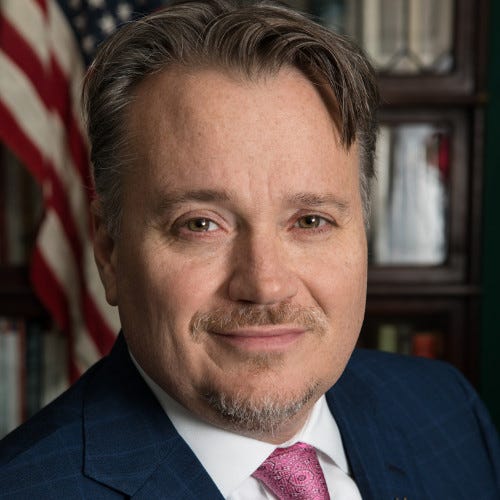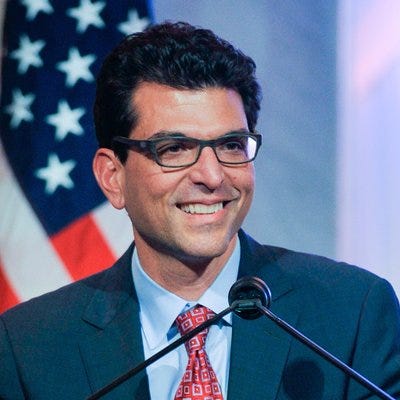
On the evening of Wednesday, Nov. 1, Common Ground presented a talk on “Remaking the U.S. Energy System,” facilitating a discussion about climate change and the pathway to a cleaner energy future. In their unique partnership with Washington, D.C.’s Bipartisan Policy Center (BPC), Common Ground held the conversation between progressive Jason Grumet, leader of the BPC, and George David Banks, a Republican political analyst and BPC Senior Fellow. Lesley Janatarasami, managing director of the BPC’s Energy Program, moderated the discussion.
To open the night, Lesley posed a simple question: “What is the goal of the U.S. energy system?” Banks responded by positioning himself as a “Republican who cares a lot about climate” and posited that he views the central question of the climate and energy debate as: “How can we leverage U.S. energy policy to produce the results that we need?”
Grumet opened by sharing his gratitude for the spirit of Common Ground, stating that “it is the imagination of this collaboration that is as important as any of the precise insights we are going to share with you,” establishing a wider framework for a detail oriented discussion. Grumet then made a fundamental point about the Inflation Reduction Act, a Budget Reconciliation bill recently signed by President Biden that commits $369 billion to Energy Security and Climate Change Programs, and embraces “an energy strategy that’s based on innovation and investment.”
Grumet asserted that this bill actually aligns with Republican ideology, but that Republicans dispute the bill because of the way in which it was passed. What this point proves is that “process matters” according to Grumet. This bill has enraged Republicans so much that they are taking active steps to repeal it.
In considering the reconstruction of the US energy system, Banks emphasized the importance of supply chain security, asserting that “the supply chain security agenda is going to drive further decarbonization.” Banks also cautioned against the possibility of foreign nations, such as China, pursuing “predatory trade systems.”

Subverting typical understandings of the energy industry, Grumet asserted: “2/3rds of renewable power being built in the US right now is being built by companies that also have fossil fuel assets” and that a clean energy industry is “going to be an energy industry that looks a lot like the current energy system.” Industries employing fossil fuels are actually key players in decarbonization.
On the question of regulation, Banks argued that the “regulatory approach is a bad one.” Grumet agreed, explaining that “there is so much political pressure to whittle them down that they come out and endorse what’s already happening.”
Later, the speakers reflected on the larger geopolitical landscape’s relation to this issue. Comparing the U.S. to China, Grumet insisted that the U.S. will “never be able to compete with them in the ways they are spending and modernizing.” He continued, “Democracy is beautiful but it is complicated and clumsy.” Banks commented on international efforts to employ nuclear power: “Nuclear will certainly play a role outside the U.S. — it is going to be Chinese and Russian built.” Following a student question regarding China’s monopoly on minerals, Grumet clarified that this is not the result of unique geology in China, but rather China’s control of the processing of minerals. According to Banks, “the tensions with China are not going away any time soon…that’s going to drive innovation in these technologies.” Harkening back to the Age of Exploration, Banks argued that this competition will stimulate innovation. “I am a firm believer in Western Entrepreneurship” he stated.
Grumet closed by declaring: “the future is very bright and every day is a crisis,” emphasizing that the speed and scale at which the US must make this energy transition is unprecedented. Banks insisted that “we have to think big and we need to be policy disruptors.” Grumet declared that “we have a bigger problem in information and democracy than we do in innovation and technology.” Banks affirmed: “Humanity has proven its ability to innovate.”
























